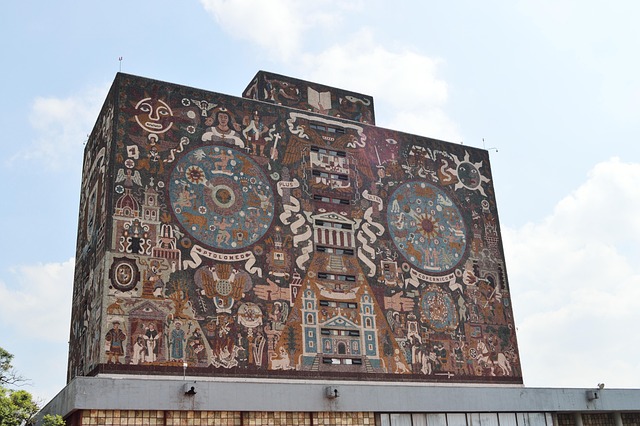UK cookbooks and culinary guides demand specialized translation services to preserve cultural integrity and authenticity. These services employ translators who understand culinary nuances, ensuring recipes can be accurately replicated globally. Key aspects include capturing regional specialties, adapting ingredients and cooking techniques, maintaining consistency in measurements and terminology, and preserving visual elements and copyright. Strict adherence to legal considerations, particularly intellectual property rights, is crucial for ethical translations. Reputable providers implement robust Quality Assurance processes, leveraging culinary expertise alongside linguistic skills to deliver high-quality guides accessible to a global audience.
In the world of culinary exploration, translation goes beyond words on a page. Ensuring quality in UK cookbooks and culinary guides is paramount to preserving cultural heritage and creating engaging experiences for global audiences. This comprehensive guide delves into the intricate aspects of culinary translation, from navigating cultural nuances to adapting ingredients and cooking techniques. By exploring essential considerations like accurate recipe portrayal, choosing expert language specialists, and implementing rigorous quality assurance checks, this article ensures your culinary content resonates worldwide.
- Understanding Cultural Nuances in Culinary Translation
- The Importance of Accurate Recipe Portrayal
- Choosing the Right Language Experts for Cookbooks
- Adapting Ingredients and Cooking Techniques
- Preserving Regional Specialties and Traditions
- Ensuring Consistency Across Multiple Languages
- Visual Aids: Photos, Diagrams, and Their Translation
- Legal Considerations in Cookbook Translations
- Quality Assurance Checks for Culinary Guides
Understanding Cultural Nuances in Culinary Translation

When translating UK cookbooks or culinary guides, understanding cultural nuances is paramount to ensuring quality. Food is deeply intertwined with cultural identity, and what may be considered a simple ingredient or cooking technique in one culture could carry different associations or rules in another. For instance, certain spices or herbs might hold symbolic meanings or be used in specific ways that are unique to a particular region. A professional translation service specializing in culinary content should employ translators who not only excel in language proficiency but also possess a keen awareness of these cultural subtleties.
This cultural sensitivity extends beyond ingredients and techniques to the overall presentation and style of cooking. Different cultures have distinct expectations regarding portion sizes, dining etiquette, and even the order in which dishes are served. Capturing these nuances requires more than just word-for-word translation; it necessitates a deep understanding of culinary traditions and practices that UK cookbooks and guides aim to convey. This is where specialized translation services come into play, ensuring that cultural authenticity and culinary quality remain intact in translated content.
The Importance of Accurate Recipe Portrayal

In the world of culinary arts, precision is key. When it comes to sharing recipes and cooking techniques across languages, accurate translations are non-negotiable. UK cookbook and culinary guide translation services play a vital role in preserving the essence of culinary traditions while making them accessible to a global audience. An adept translator not only conveys the list of ingredients and instructions but also captures the cultural nuances and cooking styles that make each dish unique.
Accurate recipe portrayal ensures that home cooks and professional chefs alike can replicate dishes with confidence, maintaining the integrity of flavors and techniques. This is especially crucial when translating recipes from one cuisine to another, as cultural differences in ingredients and preparation methods can significantly impact the final result. Therefore, a skilled translator must have a deep understanding of both culinary traditions to bridge this gap effectively.
Choosing the Right Language Experts for Cookbooks

When it comes to translating UK cookbooks and culinary guides, selecting the most suitable language experts is paramount. It’s not just about finding native speakers; specialized knowledge in cuisine and culinary terminology is equally vital. Look for translators who have a passion for food and cooking, perhaps with personal or professional experience in the kitchen. This expertise ensures that translations are not only linguistically accurate but also capture the essence of each dish and ingredient.
Consider seeking professionals who have worked on similar projects before, especially within the culinary industry. Their familiarity with UK recipes, measurements, and cultural food preferences will result in more precise and appealing translations for global audiences. Additionally, these experts should be adept at conveying not just the recipe but also the story behind each dish, making your cookbook or guide an engaging and authentic experience for readers worldwide.
Adapting Ingredients and Cooking Techniques

When translating culinary content, adapting ingredients and cooking techniques is crucial for maintaining quality. Professional translation services for UK cookbooks and culinary guides understand that recipes are more than just lists of ingredients; they tell a story and evoke cultural experiences. Therefore, translators must not only replace words but also consider regional substitutions, as not all ingredients are readily available everywhere. For instance, substituting fresh herbs with dried ones or finding local equivalents for specific spices can significantly alter the dish’s final flavour.
Moreover, cooking techniques vary across cultures, from baking methods to food processing tools. Skilled translators should be aware of these nuances to convey precise instructions. They might need to explain different cooking times, temperatures, and equipment to ensure that home cooks in the target region can replicate the recipe successfully. This attention to detail is what sets high-quality culinary translations apart, making them accessible yet authentic for a diverse audience.
Preserving Regional Specialties and Traditions

When translating UK cookbooks and culinary guides, preserving regional specialties and traditions is paramount. Each region in the UK boasts its unique culinary heritage, from the hearty dishes of Yorkshire to the delicate pastries of Cornwall. Skilled translators must capture not just the recipe but also the essence of these local flavors, ensuring that cultural nuances are maintained. This involves understanding not only the ingredients and preparation methods but also the stories and histories behind each dish.
Professional translation services specializing in culinary content play a crucial role here. They employ translators who are not just linguistic experts but also passionate foodies, capable of interpreting and conveying regional specialties accurately. By respecting and preserving these traditions, UK cookbook translations can truly bring the diverse and rich culinary landscape to life for an international audience.
Ensuring Consistency Across Multiple Languages

Consistency is key when it comes to translating UK cookbooks and culinary guides into multiple languages. Food terminology varies across cultures, so a reliable translation service should have an extensive database and experienced linguists who understand culinary nuances. This ensures that ingredients, techniques, and even cultural references are accurately conveyed, maintaining the integrity of the original content.
For instance, UK recipes often include specific measurements like pints and ounces, which need to be converted accurately for different metric systems. Similarly, certain cooking terms might not have direct equivalents in other languages, requiring creative solutions while staying true to the method described. Professional translation services specializing in cookbooks and culinary guides can bridge this gap, providing consistent and culturally relevant translations that engage global audiences.
Visual Aids: Photos, Diagrams, and Their Translation

In the realm of culinary translations, visual aids play a pivotal role in ensuring quality and accuracy. For UK cookbooks and culinary guides, incorporating photos, diagrams, and illustrations is essential to convey ingredient presentations, cooking techniques, and final dish aesthetics effectively across languages. These visuals serve as powerful communication tools that transcend textual descriptions, enabling readers from diverse linguistic backgrounds to understand and replicate recipes with ease.
During translation services, every effort must be made to capture the essence of these visual elements precisely. Professional translators should not only translate text but also consider cultural adaptations necessary for culinary imagery. This may involve finding equivalent ingredients in local markets or ensuring that cooking methods resonate with target audiences’ familiar practices. Proper attribution and copyright considerations are equally important when using photos, diagrams, and other visuals to maintain integrity and avoid legal pitfalls during the translation process.
Legal Considerations in Cookbook Translations

When translating UK cookbooks and culinary guides, legal considerations are paramount to ensure compliance with intellectual property rights. Authors and publishers must be vigilant in protecting their original content from copyright infringement. This includes meticulous attention to ingredient lists, recipe instructions, and even cultural references, as these elements contribute to the unique value of the work.
Translation services catering to this niche must employ legal experts or have a deep understanding of UK and international copyright laws. They should also be adept at navigating trademark regulations, especially when translating brand names of ingredients or culinary tools. Proper licensing and permission from rights holders are essential to avoid legal disputes. This meticulous approach guarantees that the translated content not only retains its quality but also stays within the legal boundaries, ensuring a smooth and ethical translation process for UK cookbooks and culinary guides.
Quality Assurance Checks for Culinary Guides

When it comes to culinary guides, ensuring quality is paramount. Reputable UK cookbook and culinary guide translation services implement rigorous Quality Assurance (QA) checks to guarantee accuracy and authenticity. These processes involve multiple layers of verification, from linguistic expertise to culinary knowledge. Professional translators with a deep understanding of both the source and target cuisines carefully review translations, ensuring that flavors, techniques, and cultural nuances are preserved.
In-depth QA also includes testing recipes after translation to verify their practicality and taste. This hands-on approach ensures that the translated guide not only reads well but also functions as a reliable cooking companion. By combining linguistic proficiency with culinary insight, these services deliver high-quality translations that capture the essence of each dish, making them invaluable resources for chefs, food enthusiasts, and anyone looking to explore new culinary horizons.
When translating UK cookbooks and culinary guides, attention to cultural nuances, accuracy, and consistency is paramount. By choosing the right language experts with a deep understanding of both cuisine and language, and employing quality assurance checks, translators can preserve regional specialties, adapt ingredients, and ensure a true portrayal of recipes. Visual aids, legal considerations, and adaptability to different markets are also key components in delivering high-quality culinary translations that resonate globally.
